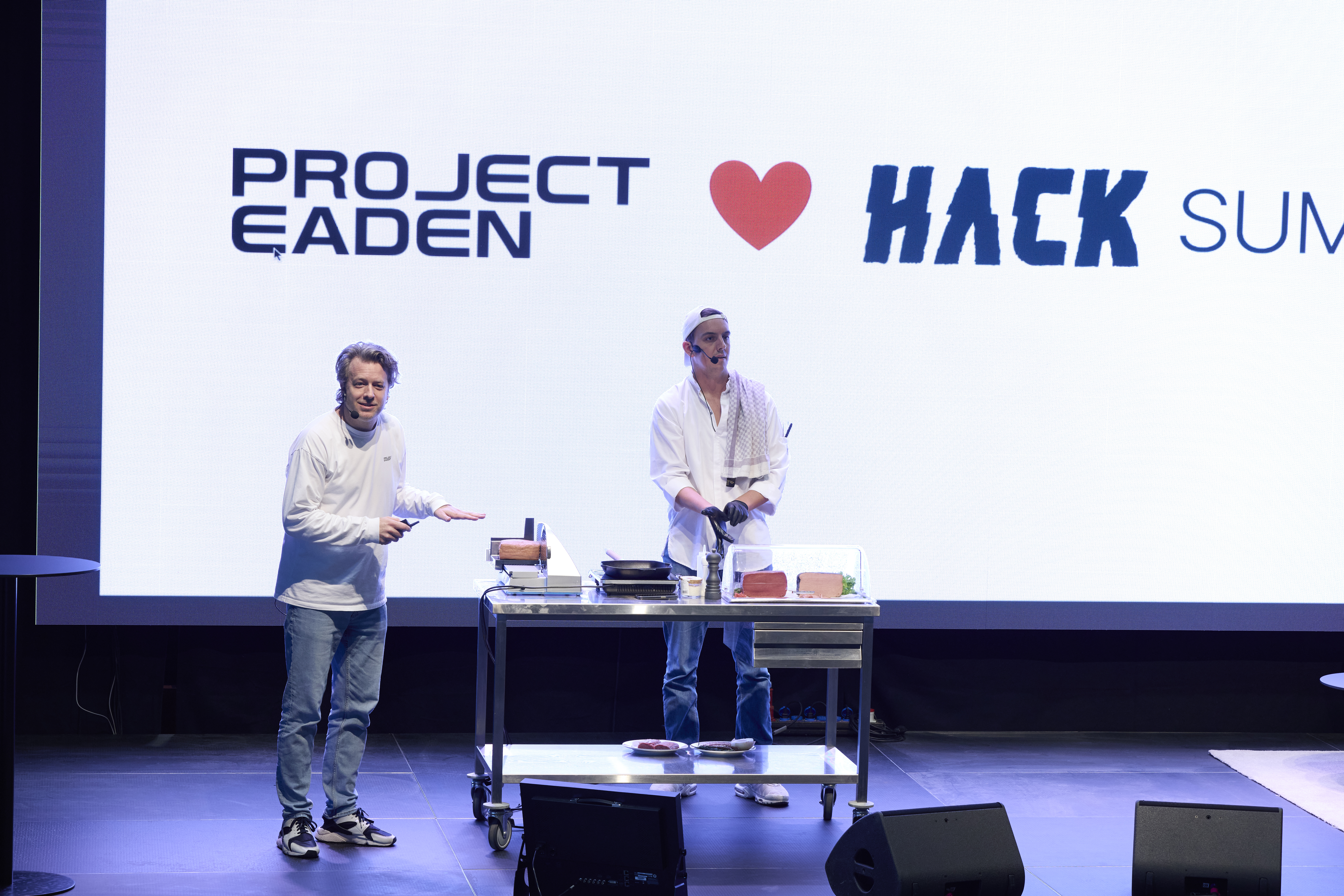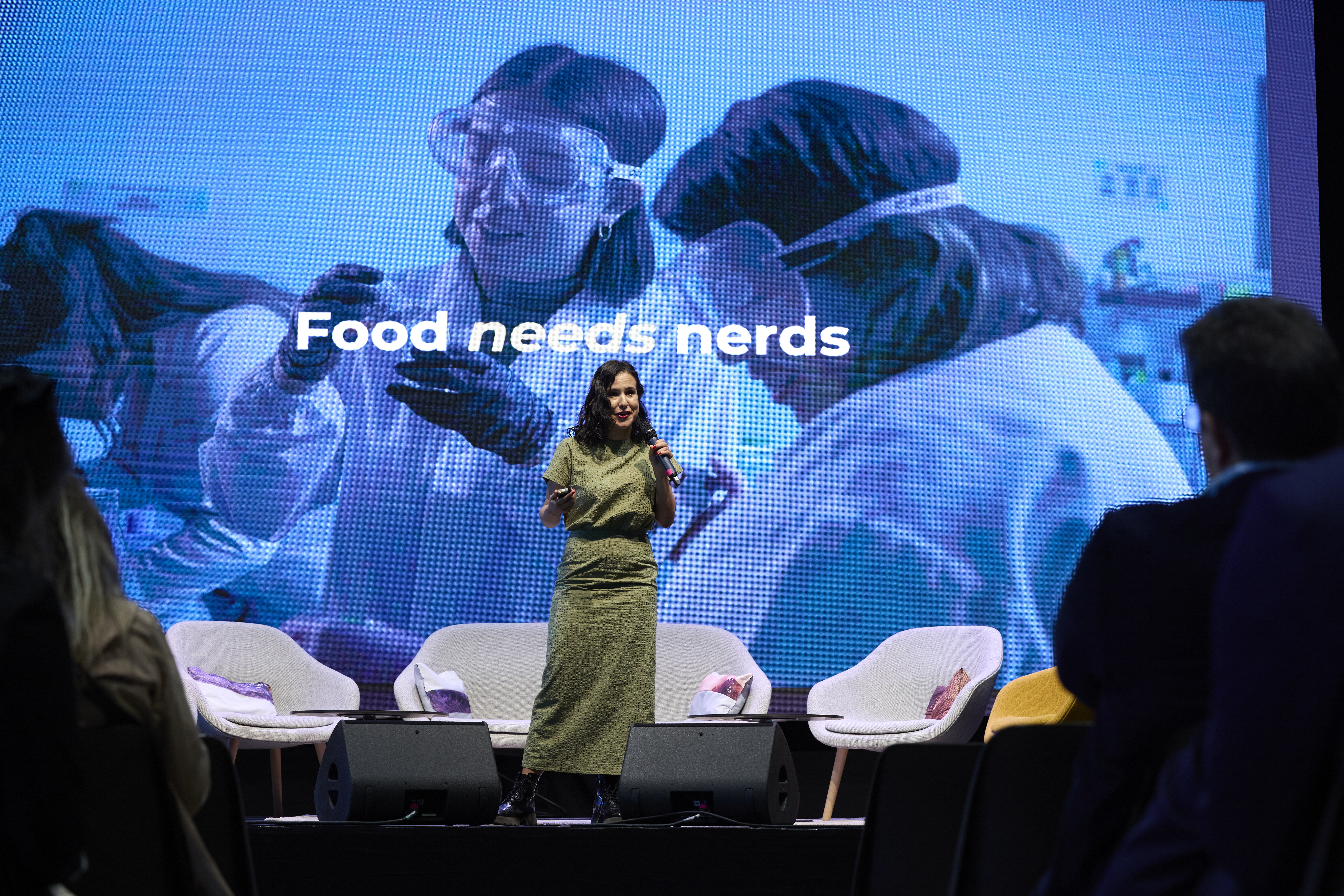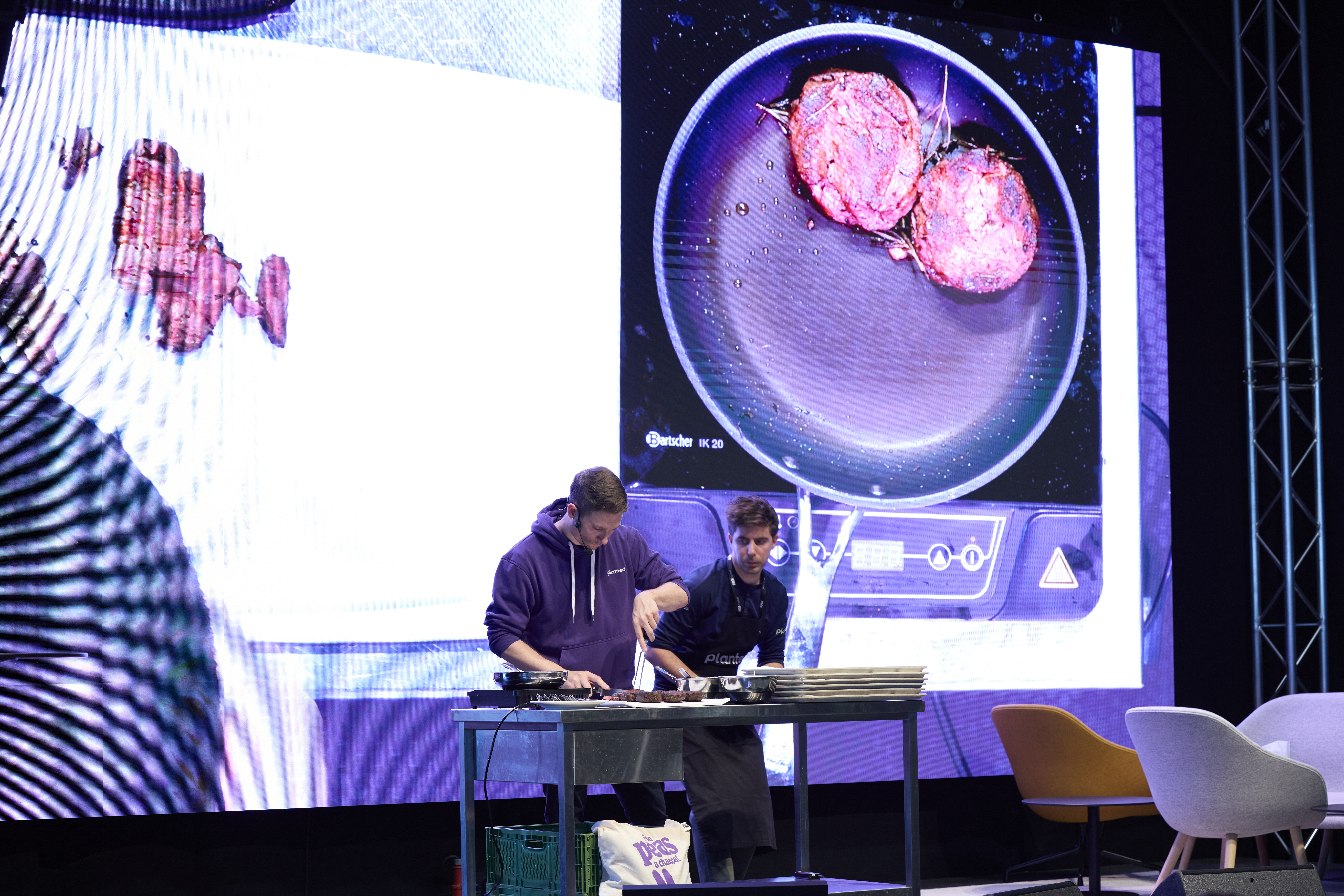You might not immediately expect it, but Switzerland is a hotbed for new climate-friendly start-ups, incubators and accelerators. During the Global Hack Summit, held in Lausanne, this summer, entrepreneurs, investors and corporate professionals gathered for two days to talk about food & climate innovation. Foodservice expert Fascal Hukker attended and selected the five most interesting food tech trends and innovations
1. Alternative coffee is booming
With a dedicated Coffee Without Coffee panel on the programme of the Global Food Hack Summit, the door has been opened for coffee alternatives. Especially with rising coffee consumption in tea-drinking countries such as India and China, considering the climate, the demand for coffee is of concern. Three start-ups with very different production methods treat us to a beanless cup of joe. The Dutch Northern Wonder, San Francisco-based Minus Coffee and Singapore-based Another Food are all determined to eliminate the coffee bean to reduce rainforest deforestation and water use.
Coffee-without-coffee producers
-
Northern Wonder's Dutch David Klingen is betting on a lupine- and chickpea-based coffee alternative. The company already has their products in supermarkets and sells to consumers at home and abroad.
-
Maricel of Minus of San Francisco-based Minus Coffee pours a cold-brew with a deep coffee and mocha flavor that drinks away pleasantly. The drink is made by toasting, grinding and then fermenting upcycled kernels, roots and seeds.
-
Stéphane Chen of Singapore-based Another Food reproduces the natural growth of coffee cells by cultivating them in her laboratory, by using cell-based production method that conserves the rainforest. This start-up is still in its early stages but the products look promising.
2. Plant-based menu as a standard for climate events
At a conference discussing the future of our food system, you can't help but serve a climate-friendly menu. During the Global Hack Summit, participants could therefore enjoy 100% climate-friendly food and drinks. For instance, plant-based shrimp tacos were on the menu, as were Lebanese vegan lamb kebabs and tempeh rice bowls. For breakfast, there were vegan brioches and chickpea-based veghurts. The highlight in terms of taste was a vegan apple strudel, made by a Bulgarian brother and sister, who run their plant-based strudel company Poushe from Zurich.
3. Charcuterie substitutes with meaty mouthfeel
Last year, we saw food tech start-ups cautiously leaping towards more nibbly foods and charcuterie. This year, companies are taking the plunge, with German start-up Project Eaden leading the way. This young company focuses on fiber-spinning technology for improved texture of plant proteins, giving meat products a better mouthfeel.

4. Food needs nerds
‘Food needs nerds.’ From the bottom of her heart, Marissa Cueva Flores of microTerra proclaimed this message. microTerra is a company pioneering in sustainable food ingredients, using the cleansing power of the plant lemna. This aquatic plant has the unique ability to purify water while producing valuable functional ingredients such as flora. This ingredient increases the perception of sweetness while reducing sugar content. It also helps mask unwanted notes of high-intensity sweeteners. Lemna has been identified as a high-protein source containing 40-45% raw protein. The production process of lemna is a complicated chemical process, which needs a touch of nerdiness. But nerds in food can develop such solutions and thereby counteract climate challenges, Cueva Flores said.

5. Plant-based Steaks are getting better
Successful Swiss scale-up Planted presented their new Planted Steak on stage at the Global Food Hack Summit. With their presence in foodservice, serving products in 8,000 outlets in Europe, they are opening up the market for their products in retail. The steaks combine soy protein, bean and rice flour, rapeseed oil and a patented blend of microbial cultures to create a high-protein, high-fiber, low-saturated fat product with iron and vitamin B12. Planted steak requires 97% less CO2 and 81% less water to produce than regular tenderloin. ‘But,’ says founder Chris Jenny, ’people are really tired of hearing that they have to eat sustainably, let's just develop the best and tastiest products, and we'll be fine.’

The Global Food Hack Summit
Food Hack was started by three young entrepreneurs who want to accelerate the transition to a better food system through food tech & collaboration. The ambition? To become the world's largest food tech & climate community. They now have ambassadors from Melbourne to New York to Mexico City, so things are moving in the right direction. Using their community, they are bringing together entrepreneurs, start-ups, investors, thought leaders and corporates, organizing meetings around the world to accelerate investment in the sector. The next Summit is on Climate Deep tech and will be held in New York on 13/14 December.